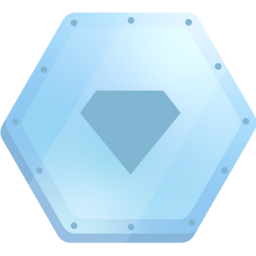Felipe Andrés Torres Haro
成为会员时间:2023
钻石联赛
25260 积分
成为会员时间:2023

In this course, you will be learning from ML Engineers and Trainers who work with the state-of-the-art development of ML pipelines here at Google Cloud. The first few modules will cover about TensorFlow Extended (or TFX), which is Google’s production machine learning platform based on TensorFlow for management of ML pipelines and metadata. You will learn about pipeline components and pipeline orchestration with TFX. You will also learn how you can automate your pipeline through continuous integration and continuous deployment, and how to manage ML metadata. Then we will change focus to discuss how we can automate and reuse ML pipelines across multiple ML frameworks such as tensorflow, pytorch, scikit learn, and xgboost. You will also learn how to use another tool on Google Cloud, Cloud Composer, to orchestrate your continuous training pipelines. And finally, we will go over how to use MLflow for managing the complete machine learning life cycle.
完成 Prepare Data for ML APIs on Google Cloud 技能徽章入門課程,即可證明您具備下列技能: 使用 Dataprep by Trifacta 清理資料、在 Dataflow 執行資料管道、在 Dataproc 建立叢集和執行 Apache Spark 工作,以及呼叫機器學習 API,包含 Cloud Natural Language API、Google Cloud Speech-to-Text API 和 Video Intelligence API。 「技能徽章」是 Google Cloud 核發的獨家數位徽章,用於肯定您在 Google Cloud 產品與服務方面的精通程度, 代表您已通過測驗,能在互動式實作環境中應用相關知識。完成本技能徽章課程及結業評量挑戰研究室, 即可取得技能徽章並與他人分享。
Earn the intermediate skill badge by completing the Build and Deploy Machine Learning Solutions with Vertex AI course, where you will learn how to use Google Cloud's Vertex AI platform, AutoML, and custom training services to train, evaluate, tune, explain, and deploy machine learning models. This skill badge course is for professional Data Scientists and Machine Learning Engineers. A skill badge is an exclusive digital badge issued by Google Cloud in recognition of your proficiency with Google Cloud products and services and tests your ability to apply your knowledge in an interactive hands-on environment. Complete this Skill Badge, and the final assessment challenge lab, to receive a digital badge that you can share with your network.
This course describes different types of computer vision use cases and then highlights different machine learning strategies for solving these use cases. The strategies vary from experimenting with pre-built ML models through pre-built ML APIs and AutoML Vision to building custom image classifiers using linear models, deep neural network (DNN) models or convolutional neural network (CNN) models. The course shows how to improve a model's accuracy with augmentation, feature extraction, and fine-tuning hyperparameters while trying to avoid overfitting the data. The course also looks at practical issues that arise, for example, when one doesn't have enough data and how to incorporate the latest research findings into different models. Learners will get hands-on practice building and optimizing their own image classification models on a variety of public datasets in the labs they will work on.
In this course, you apply your knowledge of classification models and embeddings to build a ML pipeline that functions as a recommendation engine. This is the fifth and final course of the Advanced Machine Learning on Google Cloud series.
This course introduces the products and solutions to solve NLP problems on Google Cloud. Additionally, it explores the processes, techniques, and tools to develop an NLP project with neural networks by using Vertex AI and TensorFlow.
This course introduces participants to MLOps tools and best practices for deploying, evaluating, monitoring and operating production ML systems on Google Cloud. MLOps is a discipline focused on the deployment, testing, monitoring, and automation of ML systems in production. Learners will get hands-on practice using Vertex AI Feature Store's streaming ingestion at the SDK layer.
This course introduces participants to MLOps tools and best practices for deploying, evaluating, monitoring and operating production ML systems on Google Cloud. MLOps is a discipline focused on the deployment, testing, monitoring, and automation of ML systems in production. Machine Learning Engineering professionals use tools for continuous improvement and evaluation of deployed models. They work with (or can be) Data Scientists, who develop models, to enable velocity and rigor in deploying the best performing models.
This course covers how to implement the various flavors of production ML systems— static, dynamic, and continuous training; static and dynamic inference; and batch and online processing. You delve into TensorFlow abstraction levels, the various options for doing distributed training, and how to write distributed training models with custom estimators. This is the second course of the Advanced Machine Learning on Google Cloud series. After completing this course, enroll in the Image Understanding with TensorFlow on Google Cloud course.
This course takes a real-world approach to the ML Workflow through a case study. An ML team faces several ML business requirements and use cases. The team must understand the tools required for data management and governance and consider the best approach for data preprocessing. The team is presented with three options to build ML models for two use cases. The course explains why they would use AutoML, BigQuery ML, or custom training to achieve their objectives.
This course explores the benefits of using Vertex AI Feature Store, how to improve the accuracy of ML models, and how to find which data columns make the most useful features. This course also includes content and labs on feature engineering using BigQuery ML, Keras, and TensorFlow.
This course covers building ML models with TensorFlow and Keras, improving the accuracy of ML models and writing ML models for scaled use.
The course begins with a discussion about data: how to improve data quality and perform exploratory data analysis. We describe Vertex AI AutoML and how to build, train, and deploy an ML model without writing a single line of code. You will understand the benefits of Big Query ML. We then discuss how to optimize a machine learning (ML) model and how generalization and sampling can help assess the quality of ML models for custom training.
本課程介紹 Google Cloud 中的 AI 和機器學習 (ML) 服務。這些服務可建構預測式和生成式 AI 專案。我們將帶您探索「從資料到 AI」生命週期中適用的技術、產品和工具,包括 AI 基礎、開發選項及解決方案。課程目的是藉由生動的學習體驗與實作練習,增進數據資料學家、AI 開發人員和機器學習工程師的技能與知識。